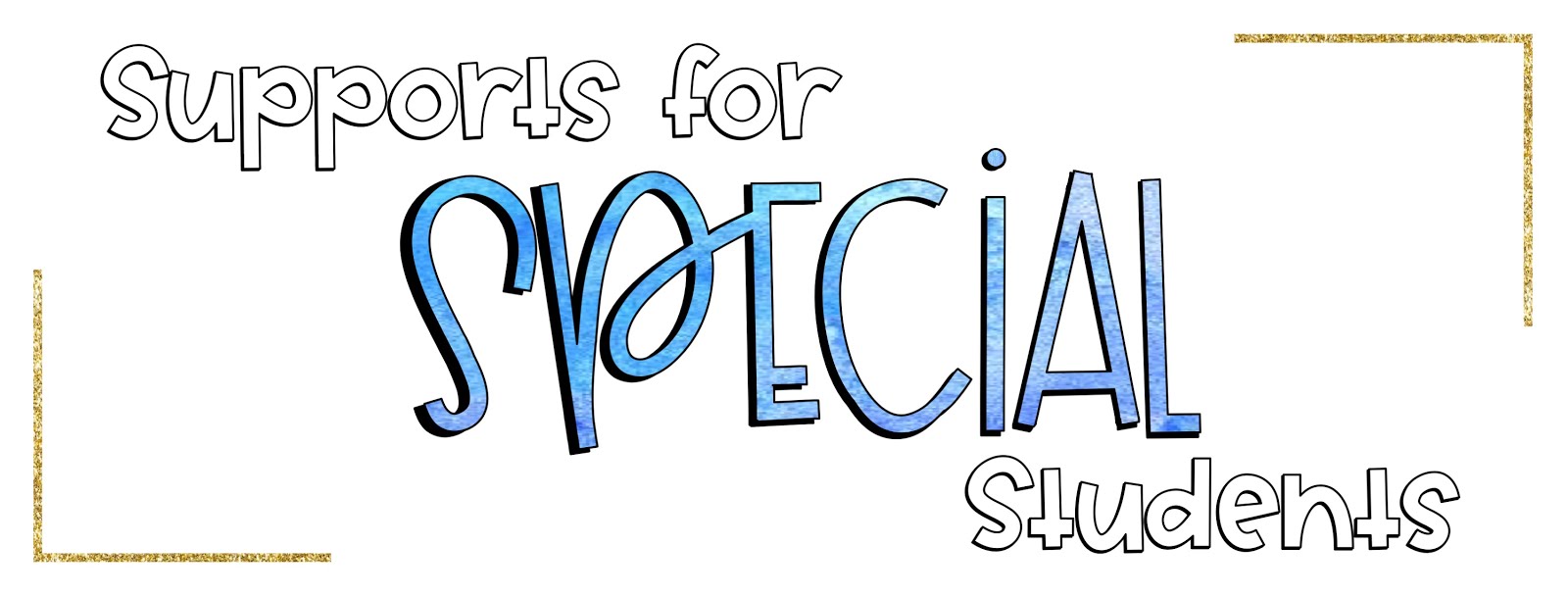Special eduction law can be a bit gray at times. Although it should be clear cut, it can be difficult to get explicit answers to some of the basic questions that pop up in the day-to-day life of a special education teacher.
Here is a scenario that you may have run into before. You need to set up an IEP meeting, but have been unable to confirm a meeting time with the family. How many attempts do you need to make to set up an IEP meeting with a family? What do you do if they don't respond? Can it all be done through email and phone calls or does one of the attempts need to be a letter? Does one attempt need to be a certified letter?
While there are laws related to these questions (which you can find HERE), you may find the answer given still leaves you a bit confused.
When it comes to these questions, and many more, the law does not give specifics. The specifics tend to come from each state's interpretation of the law and from court case rulings.
So how is a special education teacher supposed to make sense of the scattered out information and try to teach at the same time?
Well... it's really hard.
Some districts have incredible administrators who have a deep understanding of the law, current court cases, and best practice. Many of these districts also reach out to lawyers for guidance. They do the leg work so you can focus on providing your students with what they need to be successful. With that being said, it is still in everyone's best interest to know how to seek out the answers to your own questions.
If you do not have this level of support in your district, you will have to take the extra steps to become informed of your role and responsibilities as a special education teacher.
I cannot answer all of your questions here. However, I can provide you with some links and resources that will empower you to become more informed and confident in your understanding of special education law. I am going to share a ton of information. I recommend bookmarking this page so that you can refer back to it as questions arise throughout the school year.
But first, let's start with the basics. There are three main federal laws that address disabilities. I recommend you click on the links and skim through each of the laws.
The Individuals with Disabilities Education Act (IDEA) - The primary purpose of IDEA is "to ensure that all children with disabilities have available to them a free appropriate public education that emphasizes special education and related services designed to meet their unique needs and prepare them for further education, employment, and independent living." IDEA (2004) This is a major law in the world of special education and there is a lot jam packed into this act. You can use the search feature on this page to find information related to a specific topic.
Americans with Disabilities Act (ADA) - This is a civil rights law prohibiting discrimination based on disability. This law is less applicable to public education, but is still valuable to review.
Section 504 Rehabilitation Act - Section 504 extended civil rights to people with disabilities in education and other settings. The act outlines the need for a free and appropriate public education (FAPE) which may include reasonable accommodations. Unlike IDEA, students do not need to qualify for an IEP to fall under the umbrella of 504 services. Please note - this is why it is extremely important that the accommodations listed in the IEP or 504 plan are being followed. If they are not, it becomes a civil rights issue, not just a special education issue. Click on Subpart D for information related directly to preschool, elementary, and secondary education.
If reading through those three acts seems daunting, don't worry. I am going to share with you some great resources for synthesizing the plethora of information found above.
WrightsLaw - I cannot recommend this site enough. It is run by Pete Wright, an attorney who represents children with special needs, and Pam Wright, a psychotherapist who has worked with children and families since the 70s. They summarize court cases in a way that is easy to understand and provide concrete takeaways from the rulings. They have also written numerous books related to special education law and provide training around law and advocacy throughout the country. Make sure you sign up for their newsletter to stay on top of current court cases. The website has quite a bit of information and can be a little difficult to navigate. However, you can click HERE to watch a quick video about how to sift through all of the information.
Center for Parent Information and Resources - This website was produced under the U.S. Department of Education, Office of Special Education Programs. While it is geared primarily toward parents, it serves as a great resource for anyone working with students with special needs. Their resource library provides links to documents related to disability services and special education. This site is easy to navigate and the information is accurate and concise.
National Education Association (IDEA & Special Education) - This site offers "IDEA Briefs" to explain developments about and aspects of the Individuals with Disabilities Education Act (IDEA). They are presented in a question and answer format, and are quick and easy to read. The site also offers a nice summary of the 2004 reauthorization of IDEA found HERE.
Department of Education - The specifics surrounding special education law can vary between states. Search your state's department of education website for state specific laws, codes, and policies. You can search for your state HERE and get a list of helpful links.
State Specific Education Association - Many states have their own rules and regulations that expand upon those found in IDEA. Your local union (if applicable) may have resources to help you learn more about special education law in your state. If you are unable to find answers on the website, don't hesitate to reach out to your local union reps to see if there are any resources or training opportunities that may be available for special education teachers.
Understanding the law is a huge undertaking and I hope that this post has given you some guidence and resources to make it a bit easier. Do you have any other go-to resources for special education law? Please share in the comments below!












No comments